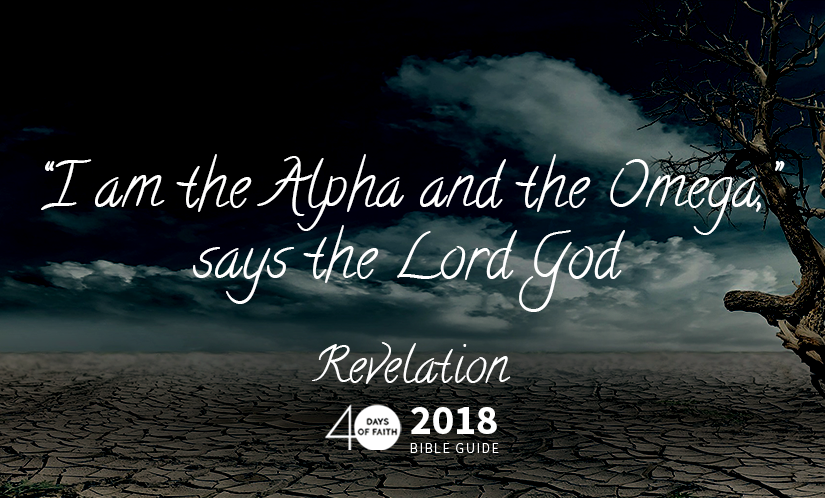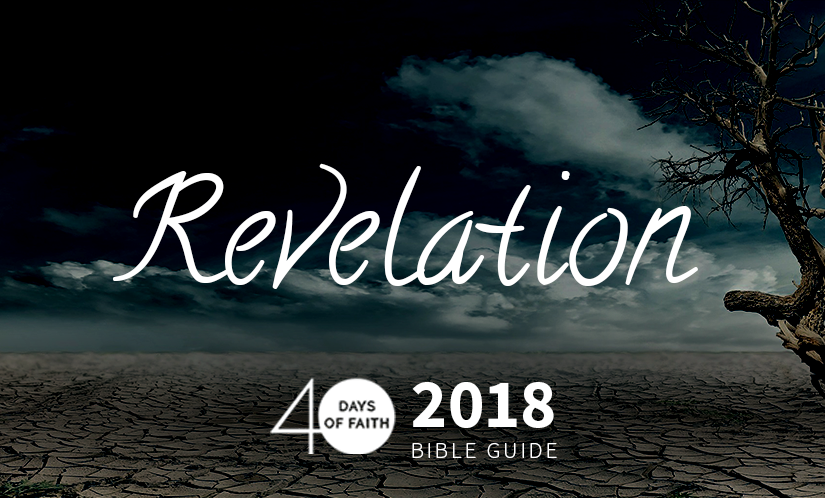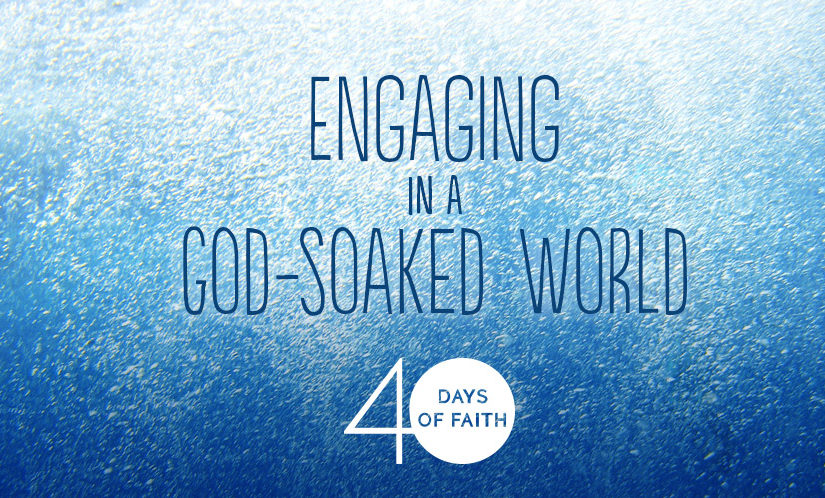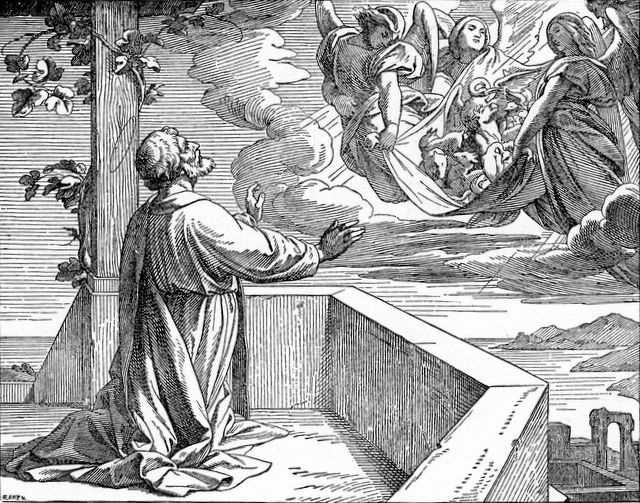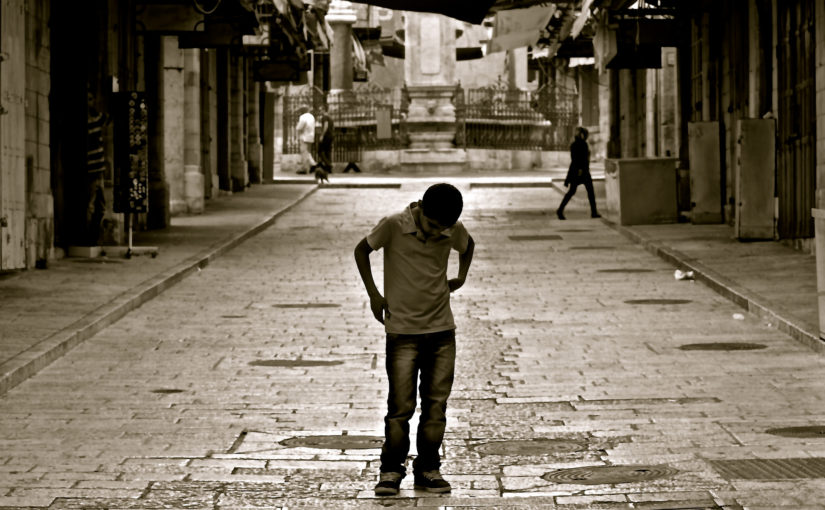read the Introduction to this Bible Guide
Day 1
Revelation 1:1-8
1The revelation of Jesus Christ, which God gave him to show his servants what must soon take place; he made it known by sending his angel to his servant John, 2who testified to the word of God and to the testimony of Jesus Christ, even to all that he saw.
3Blessed is the one who reads aloud the words of the prophecy, and blessed are those who hear and who keep what is written in it; for the time is near.
4John to the seven churches that are in Asia:
Grace to you and peace from him who is and who was and who is to come, and from the seven spirits who are before his throne, 5and from Jesus Christ, the faithful witness, the firstborn of the dead, and the ruler of the kings of the earth.
To him who loves us and freed us from our sins by his blood, 6and made us to be a kingdom, priests serving his God and Father, to him be glory and dominion forever and ever. Amen.7Look! He is coming with the clouds;
every eye will see him,
even those who pierced him;
and on his account all the tribes of the earth will wail.So it is to be. Amen.
8“I am the Alpha and the Omega,” says the Lord God, who is and who was and who is to come, the Almighty.
Points of Interest
- “The revelation of Jesus Christ” – The first two verses are a title to the book and tell us what genre we’re in – revelation, or literally, apocalypse. We hear that word and think of the destruction of the world, or at least the end of the world as we know it. But the Greek word for this literally means “uncovering” or “revealing.” Apocalyptic literature was an enormously popular form of Jewish spiritual writing in the first century A.D. and in the few centuries preceding. As Babylonian, then Persian, then Greek, and then Roman empires dominated the known world, Jewish writers – including first century followers of Jesus – kept returning to symbols, imagery and poetry to try to pull back the curtain on this known world and see what God might be up to.
- “prophecy” – John’s writing is also prophetic. Prophecy is a timely word of comfort or challenge from God. It’s often about the present as much or more than the future.
- “John” – Tradition holds that he is the disciple of Jesus that also wrote the gospel of John and the three letters of John in the Bible, but we don’t know that this is true.
- “from him who is and who was and who is to come” – This is a rich statement about God’s lifespan through all time, maybe even outside of time. God is alive now, always has been and always will be. It’s also an indication of the different time spans in which we can understand Revelation. It’s partly a book about the future end of history as we know it, but probably less so than many modern readers have imagined. Revelation isn’t some kind of codebook for our geopolitical future, as some have imagined it to be. It’s also partly a book about the past. Revelation cites Old Testament scripture exhaustively and can be read as a coded story about followers of Jesus surviving and thriving under the Roman Empire. We can also read Revelation as providing timely insights into our present. Revelation gives us poetic language and imagery to reflect on the nature of God, evil, history, and more. It also gives us insight into following Jesus while living within a corrupt, bankrupt, unjust human culture and empire.
- “from the seven spirits who are before his throne” – the seven spirits are most likely a poetic description of the Holy Spirit, imagined in angelic terms. There may be roots in Isaiah 11, where the Spirit of God is described with seven qualities. ¬
- “ruler of the kings of the earth… made us to be a kingdom” – In John’s praise of Jesus, he gives us one of the first anti-imperial encouragements for followers of Jesus. Jesus – not Rome’s Caesar or our president or anyone else – has authority over all the kings of the earth. And followers of Jesus are being shaped into a kingdom – a people or family of God who are loved and free, and available to serve God’s good purposes in our times.
- “He is coming with the clouds… the tribes of the earth will wail” – Jesus coming with or on the clouds is a metaphorical image drawn from the late Old Testament book of Daniel. It tells us Jesus is here with us, or he’s coming soon. While Jesus famously brings good news, apparently some people – those who pierced him for sure – will have some different emotions, some reckoning when they next see him.
- “the Alpha and the Omega” – the first and last letters of the Greek alphabet. The God who lives within and outside of all time – present, past, and future, is the beginning and the end and everything in between.
Spiritual Exercise
Revelation is presented as a word from Jesus, spoken by the Spirit of God, to followers of Jesus. Seven churches, representing churches all around the world, are also told to listen to what the Spirit is saying. So our first week’s spiritual exercises are about listening. What might the Spirit of God be saying to you through today’s passage? Has anything struck your mind or heart? Looking back over the last 24 hours – yours highs and lows, joy or sorrow, presence or distraction, anxiety or peace – has the Spirit of God spoken to you through your life or though any other person? Pay attention for a moment, listen, and ask God how you can respond to whatever comes to mind.
A Direction for Prayer
As you begin the 40 Days of faith, pray that you and your church are encouraged by an experience of Jesus with you and by a fresh word from Jesus to you.
The Bible Guide
This blog post is part of a Lenten journey through the book of Revelation. Every year during the season of Lent, we take a focused look at a portion of Scripture as part of our communal spiritual practice. This year, we are exploring what it means to be Children of God in a Fractured World, with Revelation as our lens. The series starts here.


